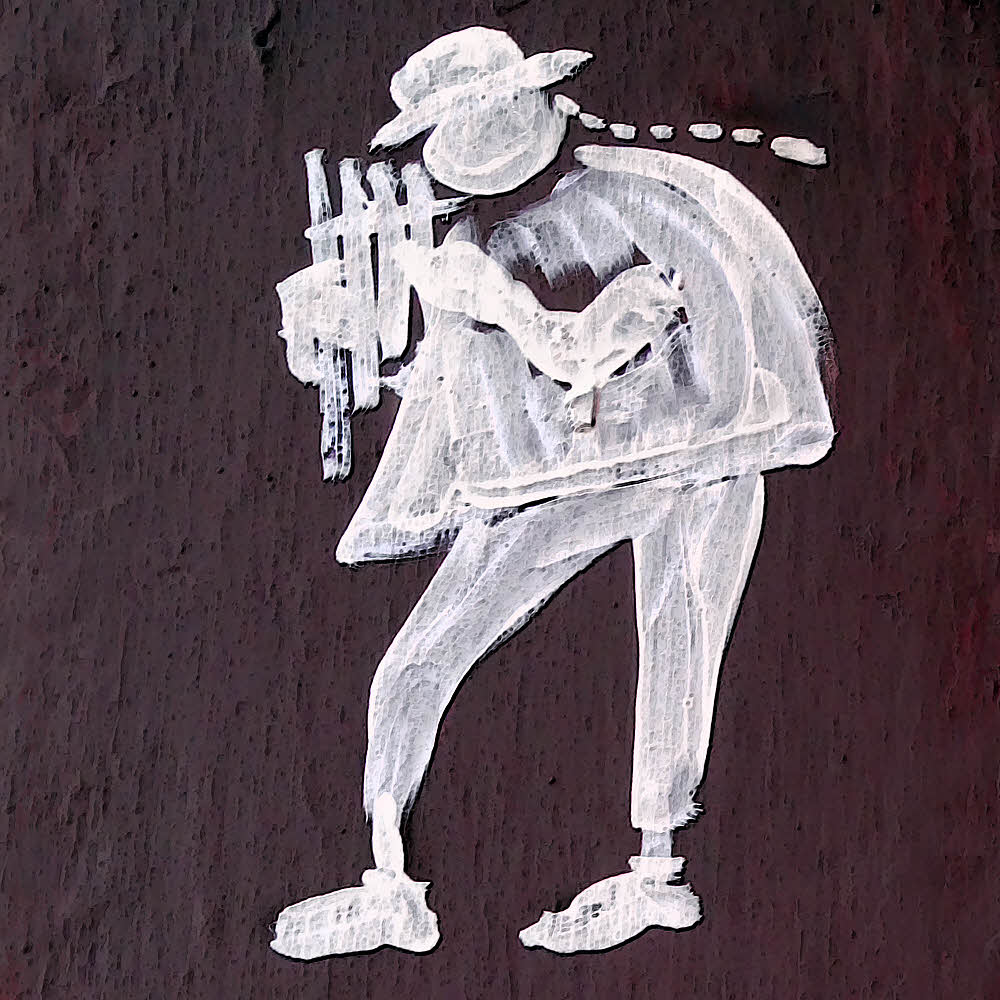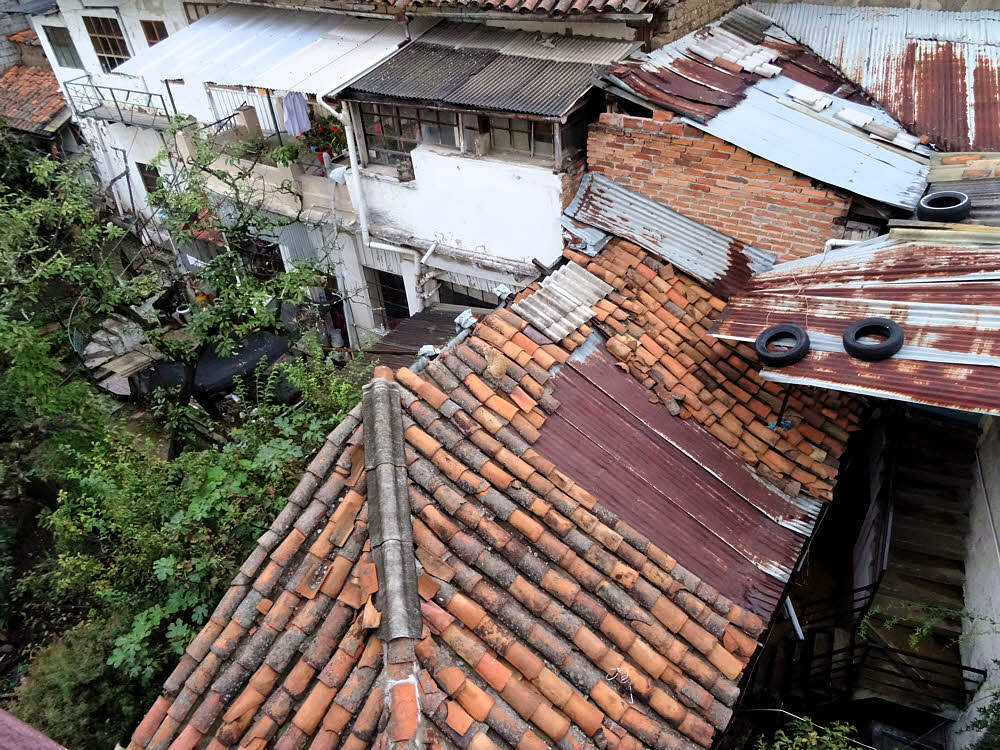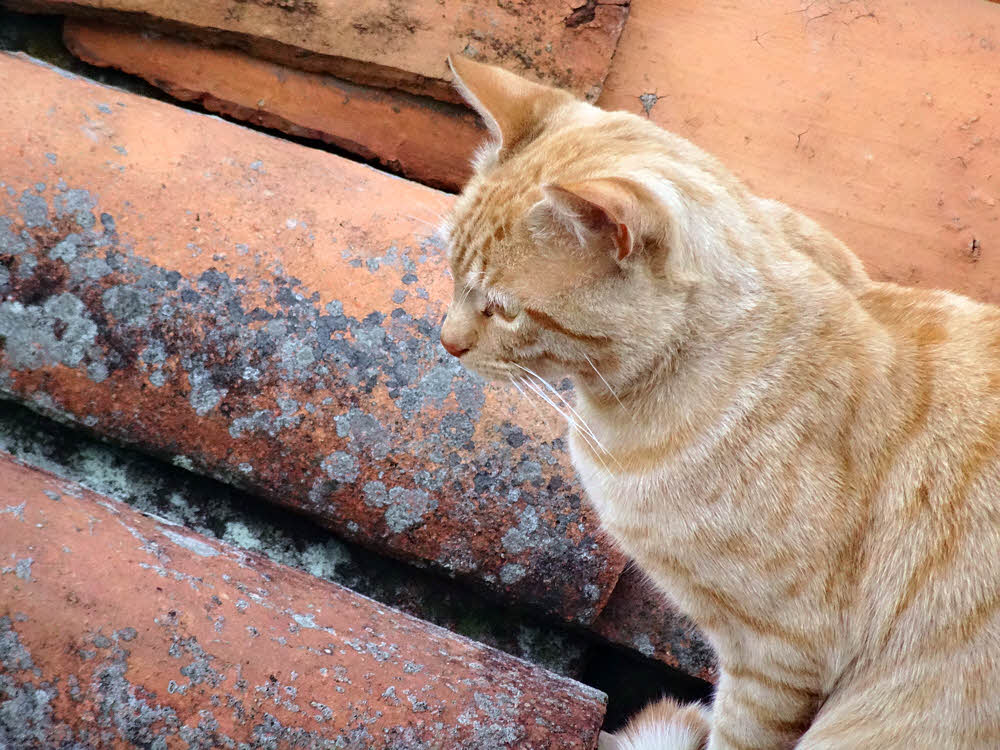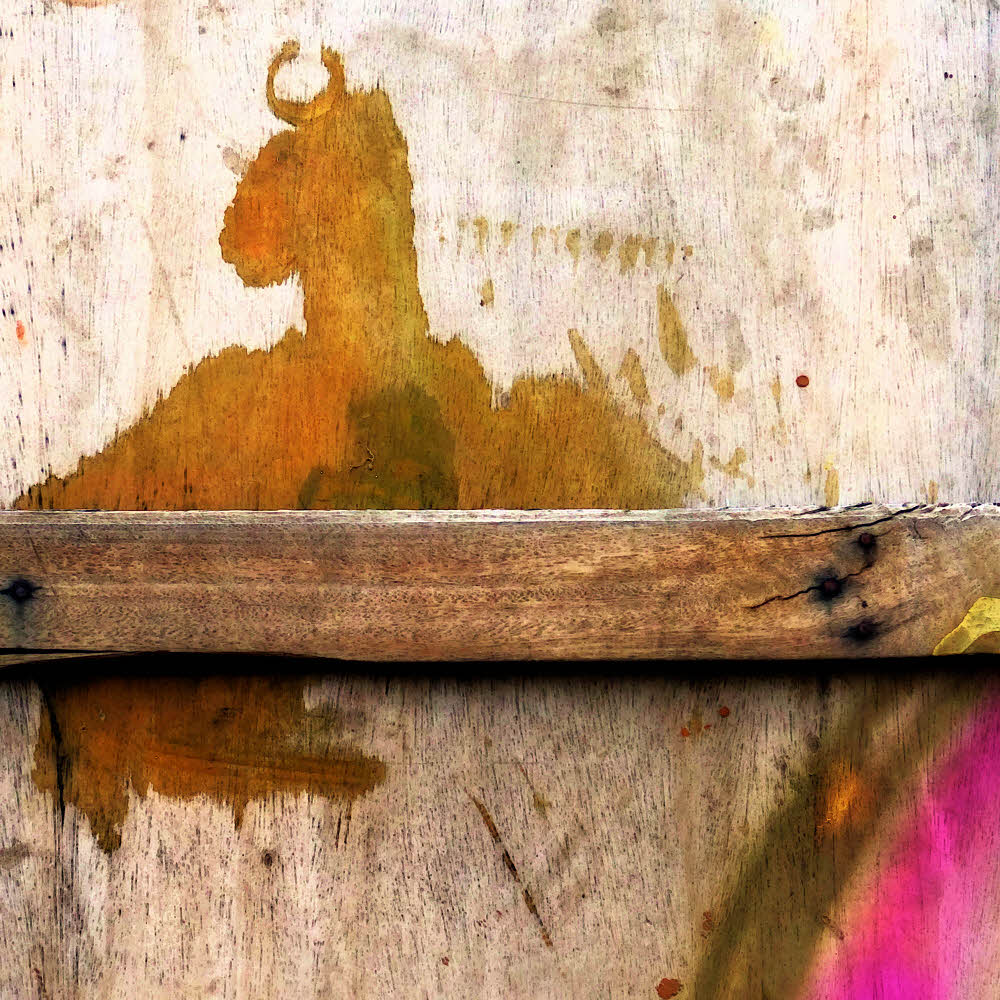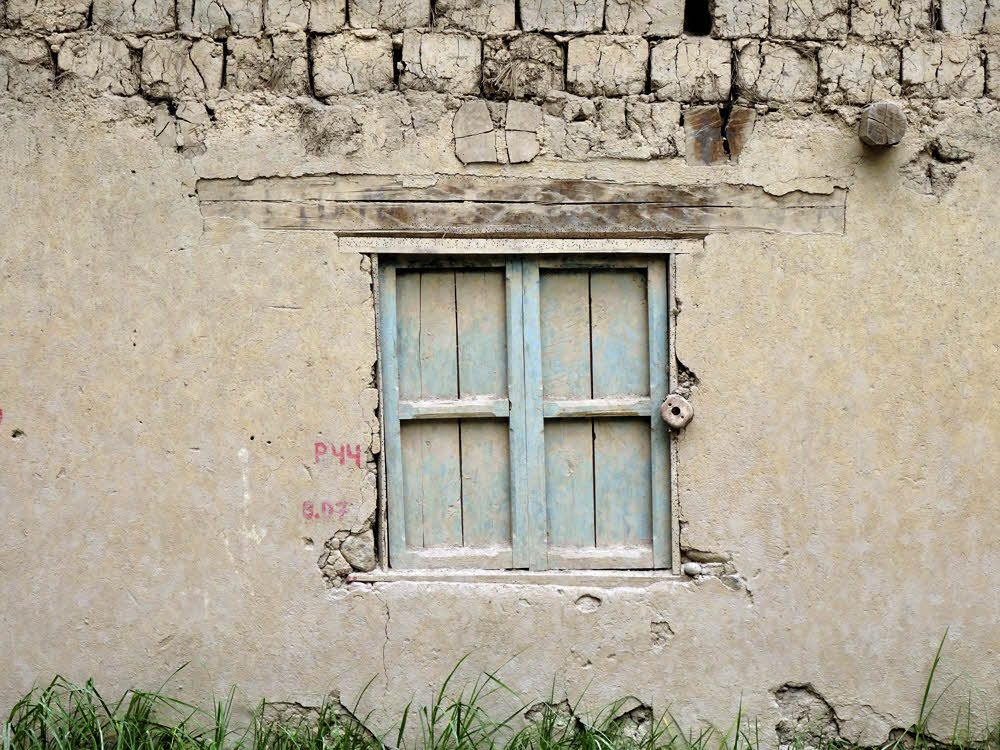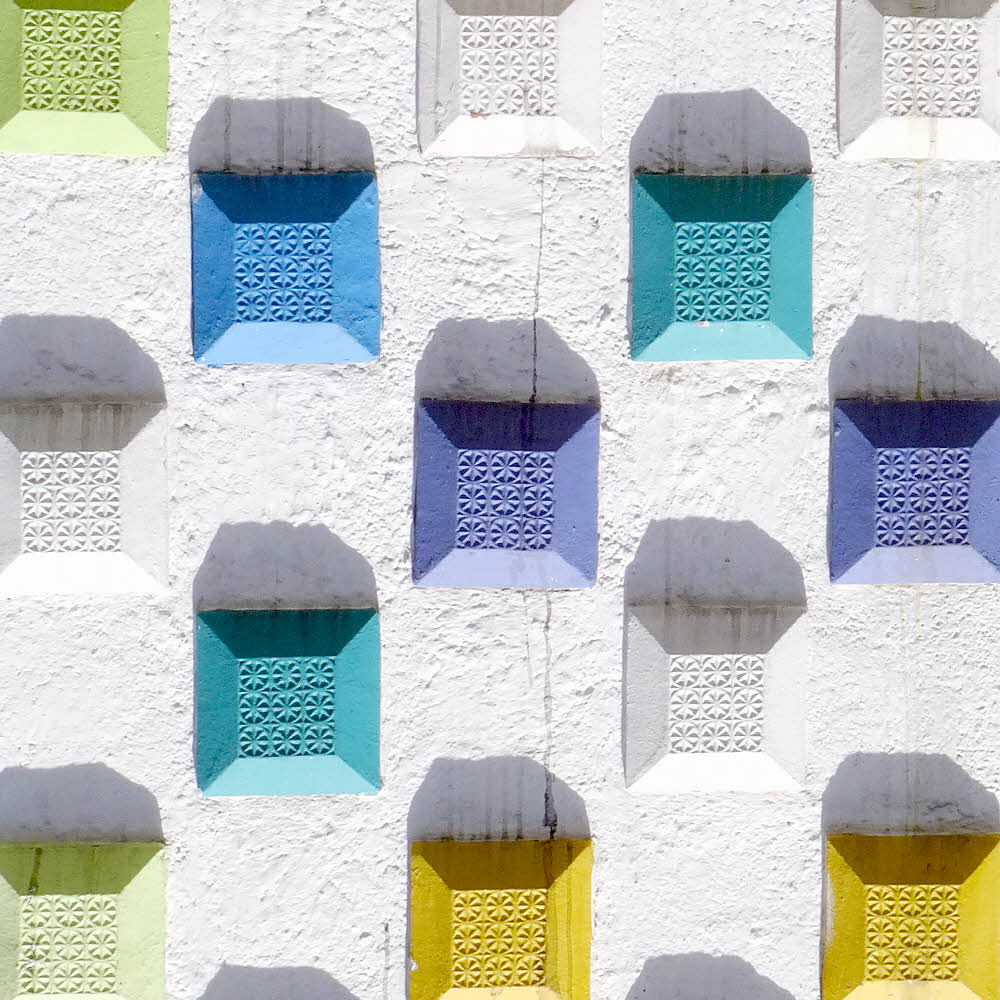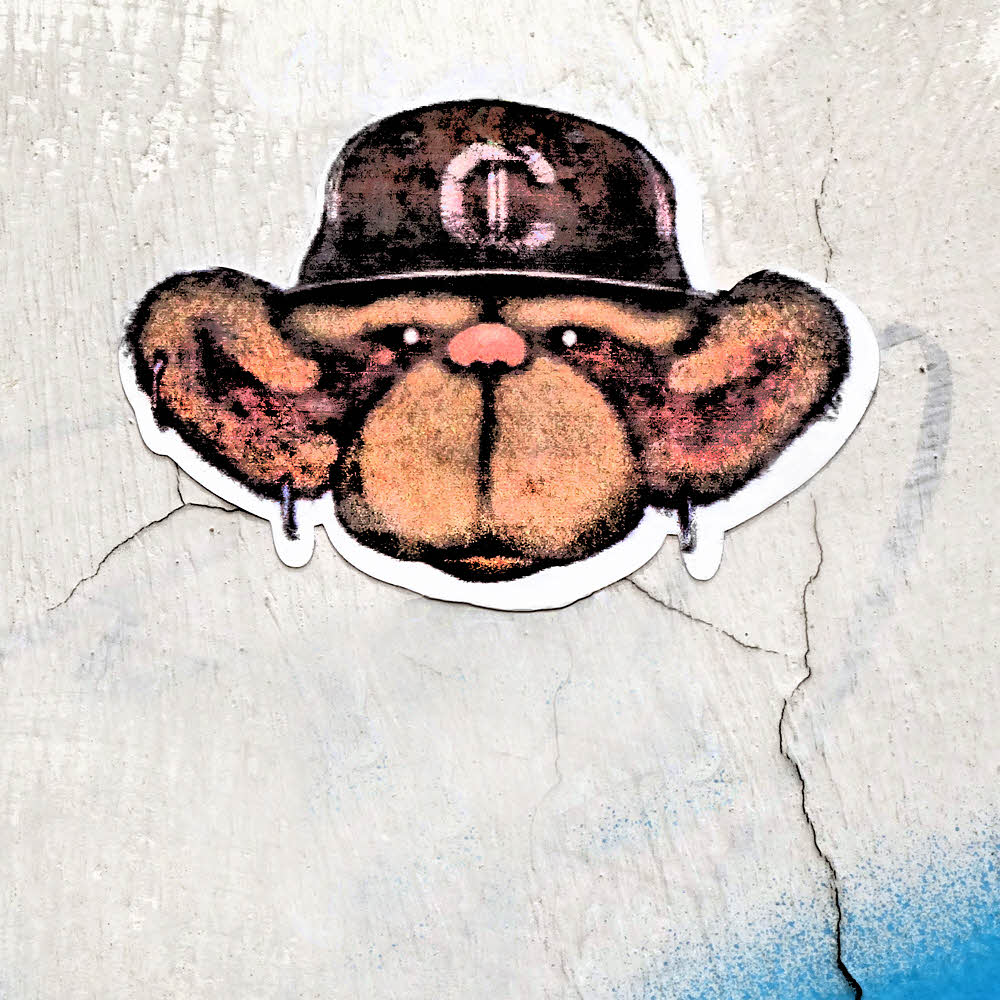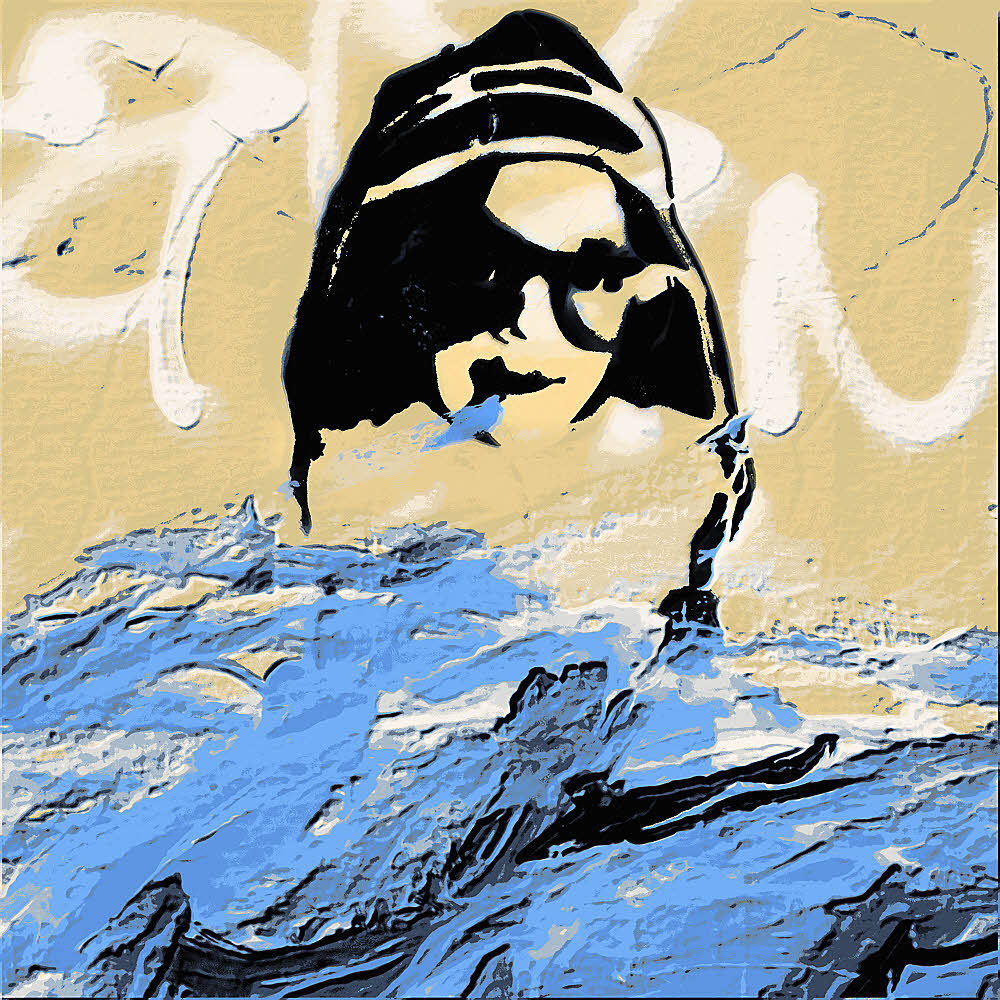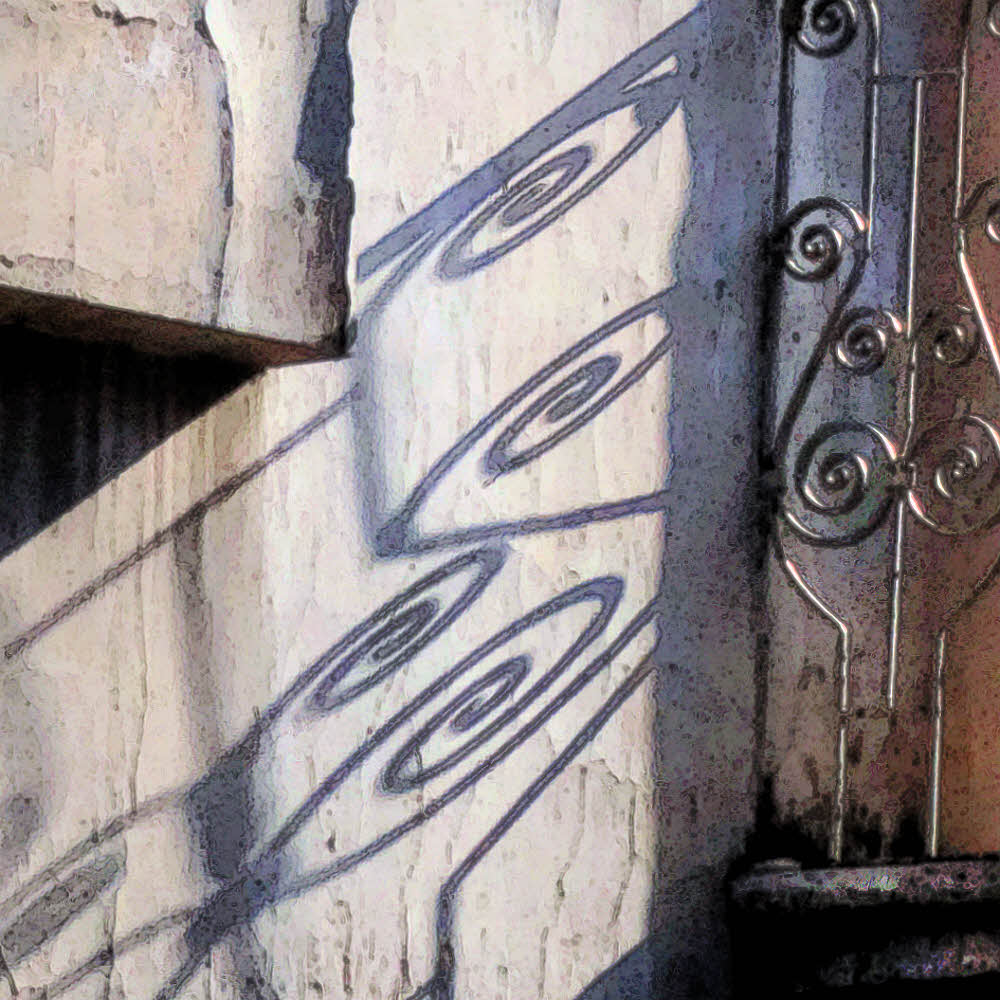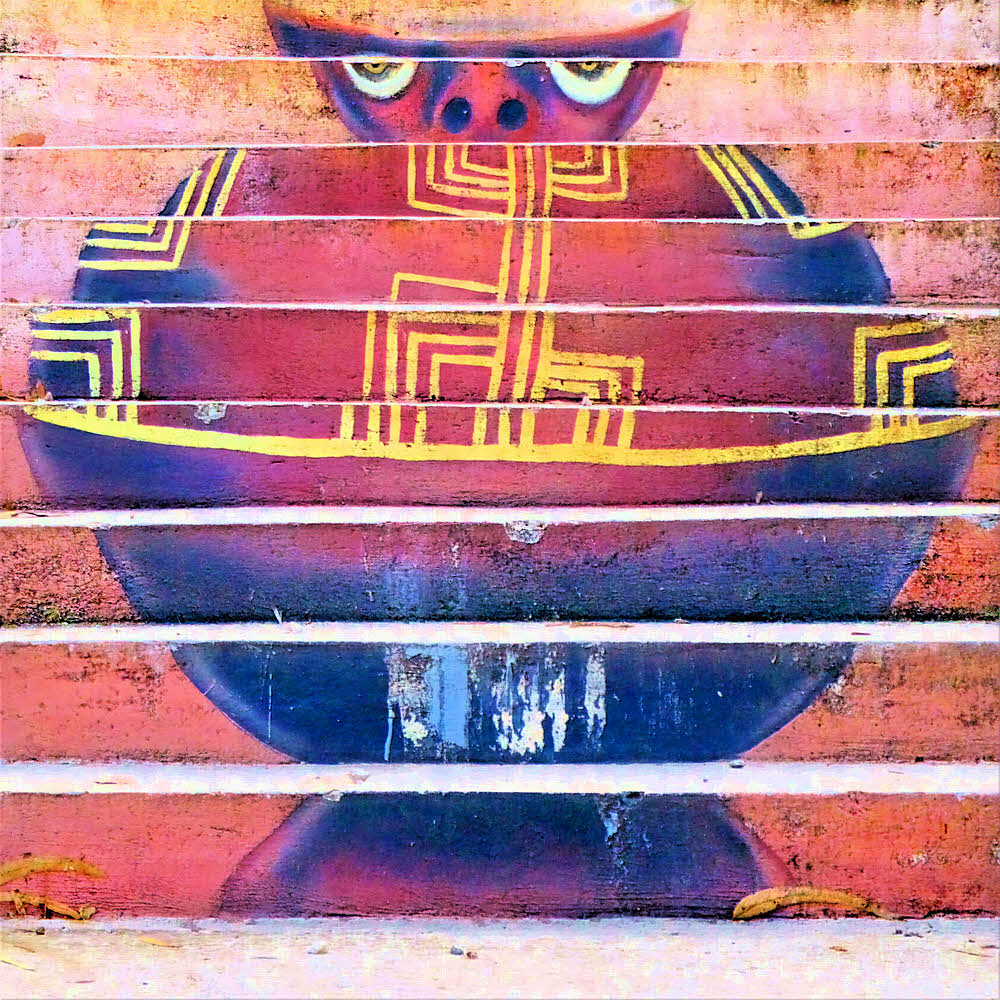
What's a prisoner to do?
Pace.
Luckily, my cell is large. I can take big steps.
I have room to rattle around aimlessly between the walls. I can go out the door, hit the street, and as long as I don't get lost, I'm OK. But this isn't really hiking, let alone backpacking, which I miss.
I spent most of the summer back in the U.S., sort of randomly backpacking around Washington State, living in a car I bought in July and sold in September, parked in nooks I found in the woods or in state parks when not on the trail. It was good enough. My time was limited and I didn't have any real plans other than to be there and enjoy summer.
My time was limited because I'm in the middle of a sort of probationary period defined by the Ecuadorian government. I'm kind of a refugee, a refugee from winter, so I'm now an Ecuadorian resident. An official, legal, recognized Ecuadorian resident. For the third time. Yeah, right — did this before. Blew it up twice. On my third round now. They let you do that.
The deal is, if you meet the requirements, which in my case is being able to prove that I have a permanent lifetime income of at least $800 a month, and no criminal history and so on, then it's basically a matter of filling out the paperwork and waiting a couple of months, and then you're in. You can stay. Forever. You can even vote. Such a deal.
And the climate here is crazy good.
Typical temperatures:
- Overnight low: 50° F (10° C)
- Daytime high: 68° F (20° C)
Wind: not bad, usually light. Sunshine: YES! Rain: Now and then, around 35 inches per year, or 889 mm, but things usually dry up shortly after a brief shower.
I'm also a former burrowing mammal from North Dakota (Land of the Frozen Dead), who moved to western Washington in 1979 and was amazed that winter never came that year. Things got darker and cooler and wetter and then started getting brighter and warmer and dryer. Summer turned to fall, which turned to spring, and then summer again. Wow. No winter, even though I grew my usual fur in anticipation, out of lifelong habit.
It was like that for a long time. A real treat for someone who grew up where the weather could kill you dead any time of the year, but especially in winter. Winter is an OK season too, but not eight months of it. That's nuts.
Well, eight months of cold or at least cool weather. In North Dakota my favorite month was October, when everything got dry and crispy and clean — no bugs, no snakes, no poison ivy, no humidity, no heat, no storms. Just progressively colder, and mostly calm-ish. Cool trending toward frosty trending toward frozen.
After that was November, which was more of the same, but a little closer to the killing edge, and then December and the holiday stuff, and after that January. I'm not sure what January is good for, but it was right in there like clockwork.
And then after January things got cold. Seriously, truly, uncompromisingly.
February was usually the coldest month in North Dakota. Brighter but colder. It's a characteristic of continental climates. There's a lag. It's like the earth way out there doesn't quite know what's going on, a communications lag or something, so the earth is always a couple of months behind, and keeps getting colder even after the sun begins getting hotter again. It's a thing. You have to deal with it. Or you die.
The last winter I lived in North Dakota, I worked outside. Delivering lumber and other building supplies by truck, around town. Just local driving. I walked to work. The coldest day was in February. Minus 35° F in the morning, minus 7 for the day's high (-37° and -22° C, respectively). Chilly. Not windy though. When it's that cold, at least the wind gives up and stays home in bed, so overall, not so bad. But North Dakota winters go on for friggin ever. That's the deal. You get tired of it.
And then you get older and it's not fun any more. So I left.
And after a few decades in western Washington I got tired of the gray winter skies. True, you can get by wearing only a windbreaker for most of most every winter (and by carrying an umbrella), but you start to go crazy too. In western Washington, it's the same kind of deal as in North Dakota, but with gray skies and drizzle instead of world-killing cold, world-killing cold and wind.
In western Washington, endless humidity and drippy skies drive you nuts by around January 4th, but things don't clear up until mid-July. Yeah, right. July 12th or 13th. I forget which. One day or the other. Like someone flips a switch. After that it's summer. Summer, and it all seems worth it once again. Summer's a killer in western Washington. In a good way. Best summers ever, anywhere. Usually lasting until the third week of October. After that, you start to see some rain again. Then more rain. Then November. November is the stormiest month, especially around Thanksgiving, but it sort of feels cozy. You get to stay indoors and eat stuff and watch the world blow around outside and the ground is suddenly covered in colorful leaves.
Which begin rotting pretty quickly. So they liquefy and then there is more rain and every day is a gray day, and later on sometime there will be a nice sunny day and you feel good again and then it rains for another two weeks after that, and so on. Yeah, right.
I spent several years living in Bellingham. Since I was busy starting over, learning math and physics and such I didn't pay much attention to the weather until I read the newspaper headline one day: Sun Visible for First Time in 60 Days (paraphrasing here, but a true story — from about 1982). It was actually front-page news.
It does make you crazy after a while, so when I got old enough I figured Hey, enough already, and moved to Ecuador.
And then got bored, and moved back, and then got bored with that and moved back to Ecuador and got residency a second time. And then got bored, and moved back to the U.S. and got bored with sitting around all winter (but summer was nice), and got a severe case of the galloping dreads looking at my second winter back there, and moved back to Ecuador and got residency an effing third time, and now here I am again. (Slow learner, wot? Cost me a bunch too, but money's free these days — it just rolls into my bank account toward the end of every month, so it's only numbers. I don't really have enough to live in the U.S. any more, but here I'm actually rich-ish. Can't complain. I'm free to do stupid things now and don't have to get up and go to work and be around morons any more.)
Oh hang on — I can complain.
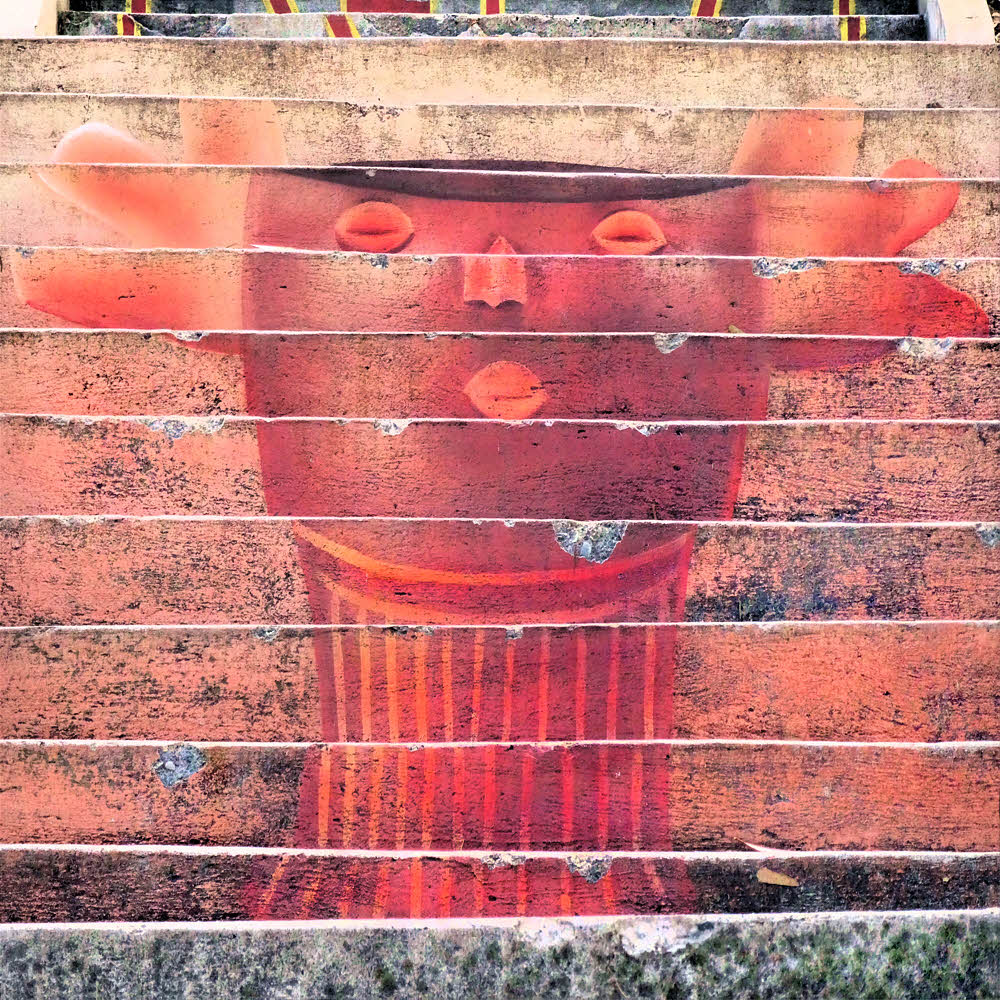
First, I'm a dick. But then, someone has to be, so deal with it. I don't care. (Yes I do, but I'm trying not to whine.)
Second, there's this problem with Ecuadorian law. See, if you get residency, you have this probationary sort of period that goes on for two years. For those first two years you can't be out of the country for more than 90 days each year, or you lose your residency, and I've done that already, so this time I'm biting the bullet and living with it.
I was gone what was it, around 82 days in 2016. My anniversary date was December 7, so I have another 251 days to go until I'm totally permanent. After that I can be out of the country for 18 months at a time. That would work. Meanwhile, I can be gone up to 90 days again between now and next December 7. Happy Pearl Harbor Day, me.
After I see another year go by I can spend eight or nine months backpacking while maybe living in a van, and three or four months here, enjoying not-winter. (By the way, the UV index for today is 10. That means if you spend more than 12 seconds out in the sun your skin starts smoking and bubbling. After a minute or so your skin is fully cooked and starts to slide off. Been there, done that too. A week or two back the UV index hit 13, which will take paint off a cattle truck. But them's the benefits of living at 8000 feet or 2438400 mm. And no bugs neither.) For the rest of this week, the UV index will be just extreme. I'll write you when it's over.
But hey I'm bored again, even with all this bubbling, smoking skin going on.
The big humpy part of my day, the pinnacle, the acme, peak, summit, crest, crown, tiptop, the height, the supreme pointy part, is lunch. I do lunch now. That's my day, most of it.
After lunch, it's downhill. Not a whole lot going on, unless I go for a walk. So I walk too.
But I'm in a city. This isn't like hiking, let alone backpacking.
There are places I don't want to go, and places I can't go, and other places I shouldn't go, and then there's night. Days are relatively short here, year-round, since we're 2.54 degrees south of the equator. Sunrise at 6 a.m., sunset at 6 p.m., and then it's dark, and anyone with any sense doesn't go walking around after dark, and if you do, you quickly find out why not, so it's lunch and daytime tramping for me. For now. Though I'm still bored. And haven't figured out where or when I'll spend my 90 days of freedom during the next 12 months.
So I'm back where I started: What's a prisoner to do? Pace. Luckily, my cell is big.
And it has high walls. Maybe I can't quite escape, but I can climb up the walls. That's what I do sometimes.
"Cuenca" means "basin". The city is in a football-shaped valley. Officially, it's "Santa Ana de los cuatro ríos de Cuenca", Saint Ann of the four rivers of the basin, whatever that's about. Basin, watershed, catchment area, socket, bowl, hollow — take your pick. Valley. The city is in the bottom of a bowl-shaped valley.
To the north, the nearer valley wall. It's a short steep walk up to an overlook. Then it's a short steep walk back down. A decent workout that takes around 45 minutes if a person meanders around somewhat. Not too bad, but not a hike. But there are stairs. I like the stairs.
You can walk along streets and sort of make it an up-the-ramp walk or go the other way and end the ascent with about a hundred feet of stone steps (30m). Well, maybe 70 feet, but it looks intimidating from the bottom. Maybe only 50 vertical feet. Who am I, some kind of damn expert or something? It's a workout. Which is what I need. I go up and then come back down, huffing and puffing and snorting and farting with the effort.
But that's the toy workout. Nearby, accessible, quick, easy. Something I do when it's late and I have to do something but can't do the real thing.
The other one is the real thing: The Turi Trudge. This one can kill you. I love it.
Instead of going north, go south. See, the deal is, there is another valley wall over there. Conveniently, valleys have two walls. This second one is farther off and it's higher, and has extra special benefits.
Benefit Number One is, you get to tromp across the full width of the city. (Well, I live kinda to the north a bit, on the edge of what they call the "Historic Center", or el centro, so my walk covers most of the city's width.)
Benefit Number Two is, you get to work on your traffic-dodging skills. Which you have to do any time you step out of your door, anyhow, but let's gloss over that, 'K? And pretend that this here mess-a-words is, like, you know, imposing and important stuff. And that this is extra-special traffic-dodging.
So it's about a two-mile walk to Turi from where I live, starting with the across-town part and vehicle-avoidance, which includes running for your life and swearing, and all kinds of other fun things. But then you get there, to the south side of the city. And then the fun starts, because things suddenly get vertical.
Benefit Number Three is, stairs. Lotsa stairs. Stairs going up. To Turi. Turi is a sort of little town on the edge of town, and there's a church up there. (There's a church everywhere here — can't swing a dead cat without hitting several of them, even with your eyes closed on a cloudy day.)
Turi must be 500 feet up from the last road crossing, let alone the main part of Cuenca. Even in metric that begins to sound a bit imposing: 150 meters or thereabouts (152, eh? In case you're literal).

Cuenca from Turi.
OK, so first you walk the full length of Avenida Solana across town, and if you've managed to dodge all the deathtrap intersections, you get past the last traffic circle and there you are at Bocatti Tres Puentes. ("Hacemos lo que mas te gusta". OK, whatever.) In case you're in a deli mood and want to stop there and buy raw meat and just go home again. Again, whatever, all right? Get over it.
Which you do (get over it) by veering left and crossing the street. If possible. Because traffic, etc.
And then you take a right down the next street, and you begin ascending just about there. No fooling. By now the time for fooling is over. It's about to get serious.
And if you didn't think I meant it about traffic, well a year ago a bus ran into my hotel. Crash. Just like that. Slammed right into the corner of the building, maybe because it thought the hotel was issuing a challenge by not running for its life, or simply out of cussedness. You never know around here. Bang. Lucky for me I'm in an apartment in a separate building out back, so the first I new about all this was when I went out to to go lunch. (See the importance of lunch now? It teaches you things, like WTF is going on out here? I head out for lunch on a normal, quiet Sunday and here's this damn bus crossways in the intersection with its teeth sunk into the hotel and police all over, and about a million people all standing around waiting to see what will happen next, and all kinds of whatnot and you never know.)
So if you live long enough to make it that far, you go about a block more and there's a street going off to the right but you make a tiny jog left and enter what looks like a private driveway but isn't, and after another block the street ends and the stairs begin, but these are just the pretend stairs. They're there to fool you. To bluff you into going the other way, which will take you to a dirt road leading around the shoulder of the mountain and into some sketchy semi-farmland territory where it would be all too likely to find yourself facing a pack of angry dogs who need some tooth exercise. So guess who went that way once and lived to tell about it? Luckily the dogs were on vacation or something that time, but I'm not pushing my luck by going that way again.
Anyhow, the stairs.
Much nicer.
Houses on either side, with their gates and walls topped by barbed wire, but you mind your own business and stick to the stairs and that's work enough. Don't mess with them people and their barb wire, prolly they won't mess with you.
Just start climbing. Stop to catch your breath, turn around, and there's the city behind you, getting lower as you get higher, but that's not why you're here, so you get back to the stairs and climb some more, and after you're about ready to die you keep climbing and then you're over the hump and descend to the autopisto.
And it is a pisser. Four lanes, divided, death trap. But that's part of the fun, innit? Vehicles coming at you faster than light, with evil glints in their bumpers. You cross if you can.
After that, it's another block or so, and then another, smaller road to cross. Also a death trap, but what isn't around here?
And then...
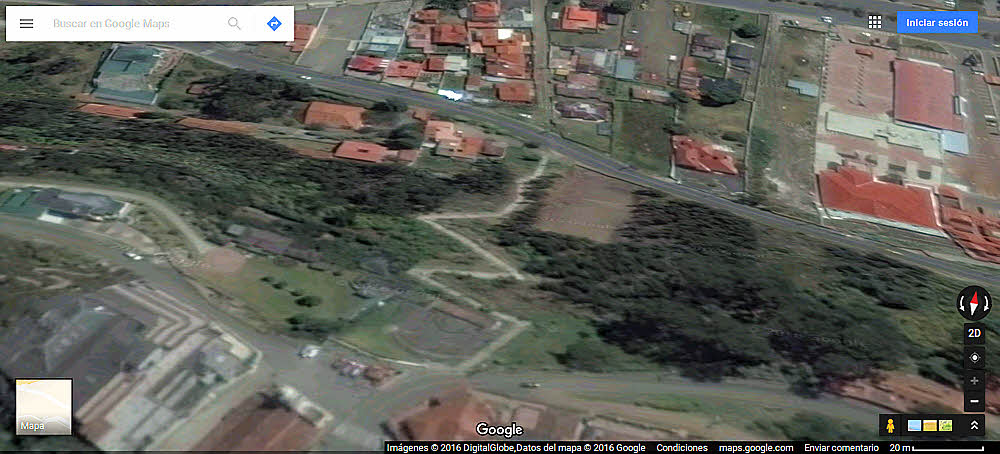
A crude view of the Turi climb. (Can't find nothin better.) About a million times tougher than it looks.
The Stairs. The Real Climb. Death On A Stick. Pant-O-Rama. The Ascent Of Endless Pain. Around 500 feet up and no one to get 'er did but you and you feets. You there, with the legs and the attitude: Take this, Smartass. Just try.
So you do.
And after you've been there a few times (up once, down once), you think about doing two laps. Up once, down once, up again, down again or die puking. And then, later, you wonder about doing three laps. Hey, since you're already there...
You know. Life — something you do to kill time while waiting to die. Relieves parts of the boredom and whatnot and it's exercise.
So if I can't get out and do real hikes, or go backpacking right now, at least I've got this.
OK, sure, I should have friends and do stuff but I'm a dick, remember? So I don't get out much. I'm awkward, like a turd at a pizza party. No good at hanging out with other people and enjoying life. Haven't found them other people that gotta be here somewheres that I can do stuff with. I do know a couple of cats around here, and they're nice, but they've been avoiding me lately too, and one bites, but without them I'd have no friends at all, so I just suck it up and carry bandages when I go a-visiting.
I'm mostly deaf too. Did I mention that? On top of the rest I'm mostly deaf now too.
Yeah, right. More fun stuff. Mister Dick-O-Rama.
Woke up May 15, 2012 and my left ear no longer worked. I happens. Leaving me with my right ear, which is only slightly more useful for hearing with than a rusty shoehorn. So I'll never be any good at Spanish, or even at learning Spanish, which makes me even more of a dick whenever anyone on the street stops me and asks for directions, or just the checker at Coral or SuperMaxi trying to be helpful, and saying something, or asking me something, and I'm standing there like an ugly (though tiny) moose, with my tongue hanging out, all puzzled-looking and dopey. (Tiny — at least I'm not ugly and huge. Then again, neither is a tapeworm and you know how much fun they are.) And with moose, you know, you never know, even with the small ones, so I scare people once they catch on that I'm not actually a reasonably predictable human thing. So life in paradise. Ain't all you'd expect sometimes. For me nor them.
Somebody's working on setting up a Hash House Harriers chapter here, and that might help. "Drinkers with a running problem," they call themselves. Active people. I can't run (back problems) but I can walk like crazy, so maybe I could fake it. We'll see. No matter how fast they try to run away, there I'll be, coming up the backstretch. There's always hope, even for me. Woot!
Does anybody say Woot! any more?
Maybe just me.
Later then, if you haven't had enough yet. Maybe see you on the steps.
(Anything here you don't understand besides me, it's on Wikipedia.)
P.S.: Hey! Wanna go hiking sometime? Just kidding. Ha! Bite me.
Bye.
